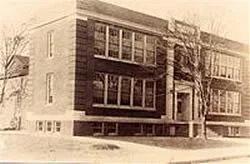FRANKLIN STREET SCHOOL
Preserving Cape May's Rich & Colorful Past
Franklin Street School opened in September 1928 as an elementary school for Cape May’s African American children.
Twenty years later, with segregation banned by New Jersey’s new constitution, the building’s use was changed.
Since then, Franklin Street School has stood as a reminder of Cape May’s past. It evokes memories of deep division and, at the same time, bears witness to the magnitude and vitality of Cape May’s African American community
Today, the Franklin Street School is distinguished as a contributing building to the Cape May National Register Historic District. It also is designated by the State of New Jersey as an African American Historic Site.
A PLACE TO SHOUT ABOUT
In 2002, the Center for Community Arts (CCA) acquired a 25-year lease on Franklin Street School from the City of Cape May. Since then, CCA has been grooming the historic building for its comeback as a community arts and cultural center.
The National Trust for Historic Preservation, the New Jersey Historic Trust and the Black United Fund of New Jersey funded project planning.
EXPOSING GREATNESS UNDER THE GRIT
A number of critical repairs to Franklin Street School already were completed by CCA to rescue the building in the early days. More recently, renovations have been completed with an emphasis on historical preservation. The renovated historical building is now part of the Black Heritage Trail of New Jersey and is home to the Cape May branch of the Cape May County Library and to CCA.
Upgraded and barrier-free, this Cape May landmark is a treasure of history and art. It serves as the centerpiece of CCA’s African American Heritage Walking Tours. Inside, features a permanent exhibit on the history of Franklin Street School, and on the key contributions of African Americans to Cape May.
Restoration of Franklin Street School has earned recognition for CCA board and staff members as Emerging Preservation Leaders from the National Trust for Historic Preservation.
The Franklin Street School Rehabilitation Project is made possible by a capital grant from the New Jersey Historic Trust and the Garden State Historic Preservation Trust Fund, the State of New Jersey, the U.S. Department of Housing and Urban Development, Sturdy Savings Bank, the Cape May County Board of Chosen Freeholders, the Delaware River and Bay Authority, and many other local businesses, individuals and families.


